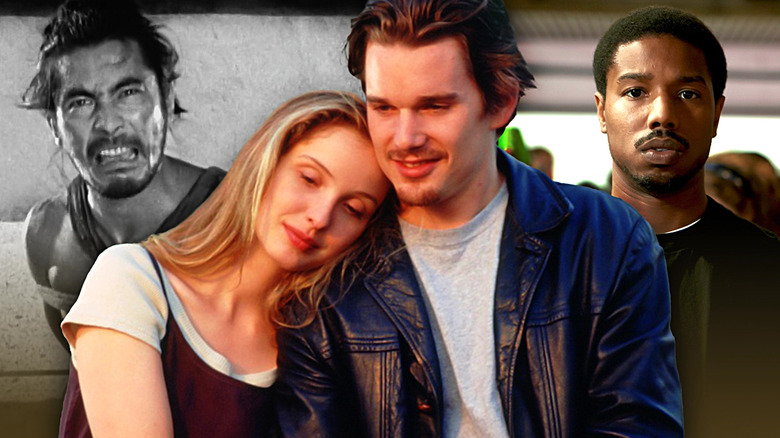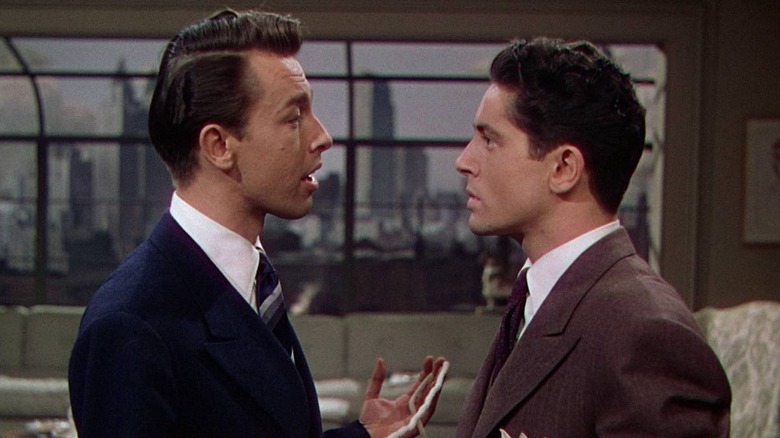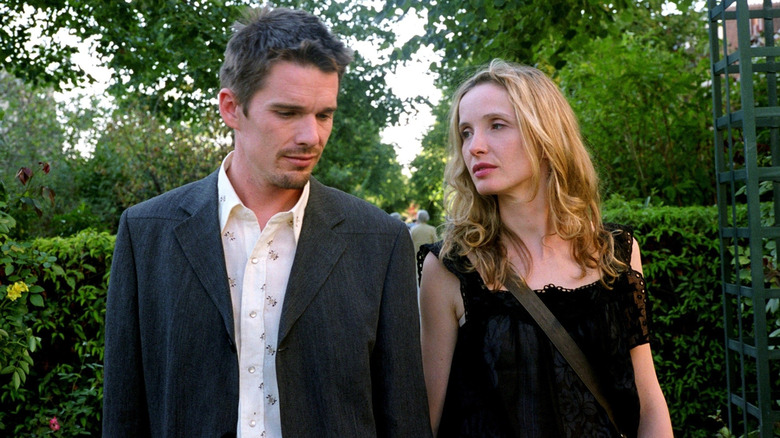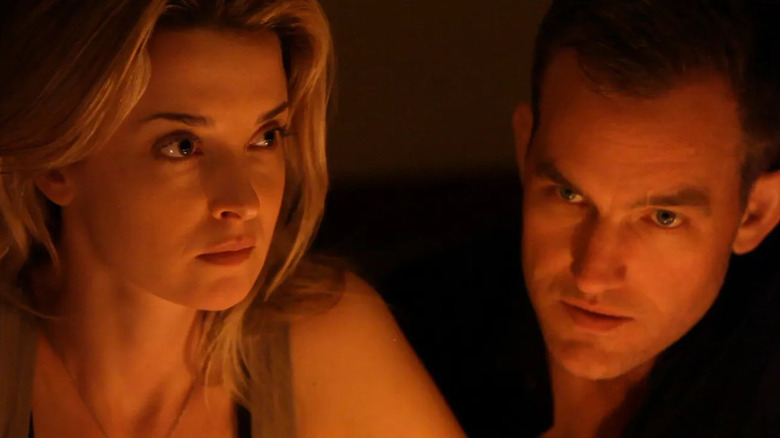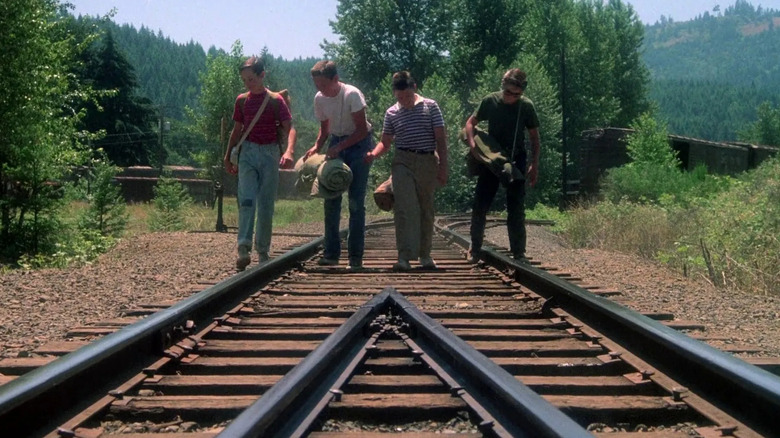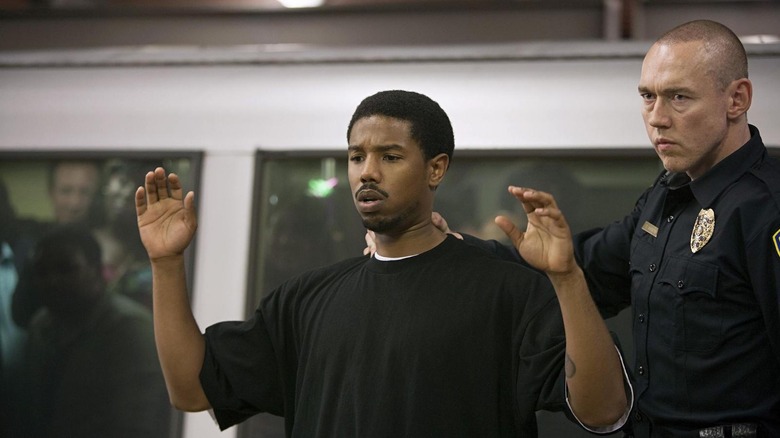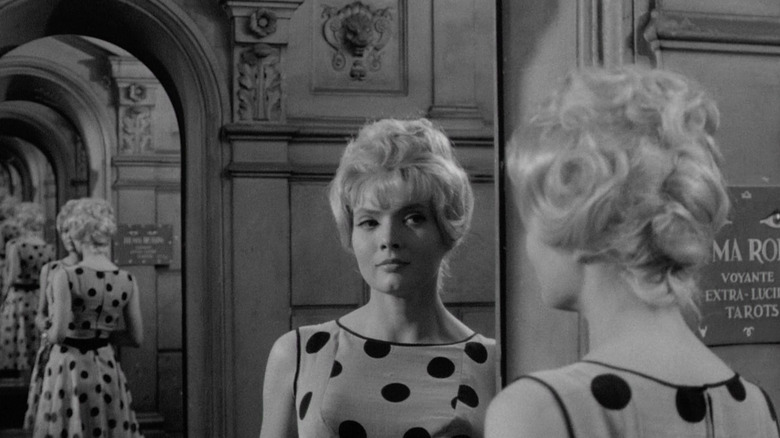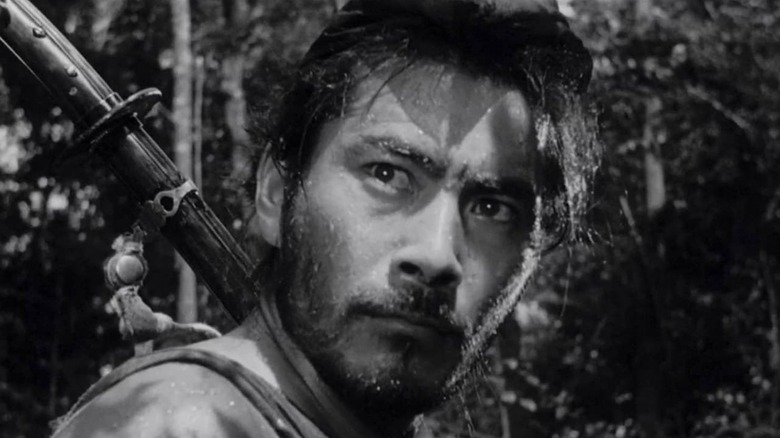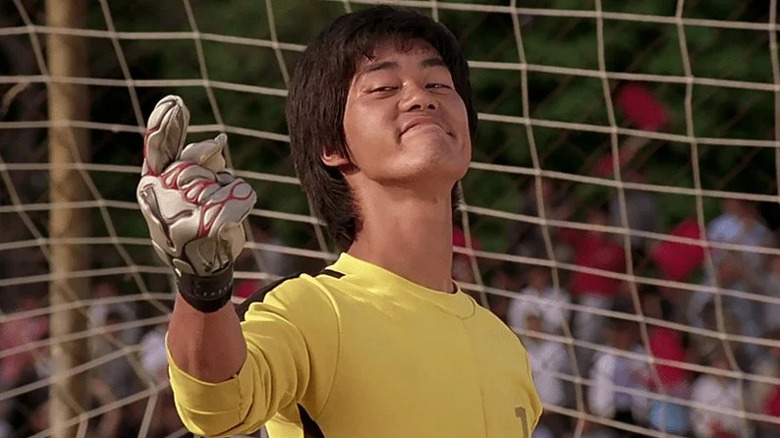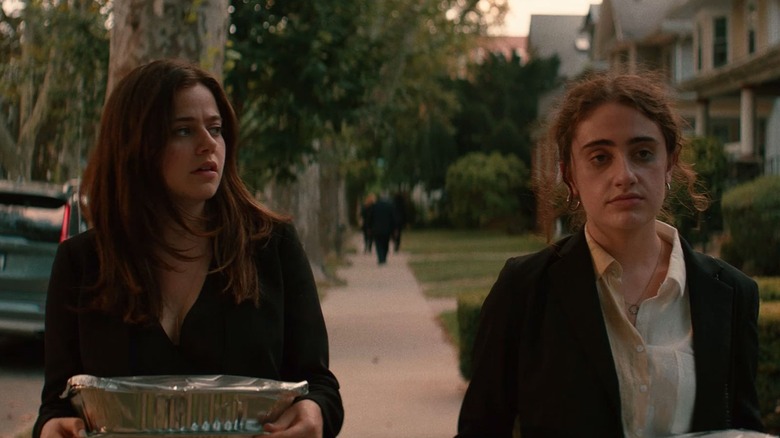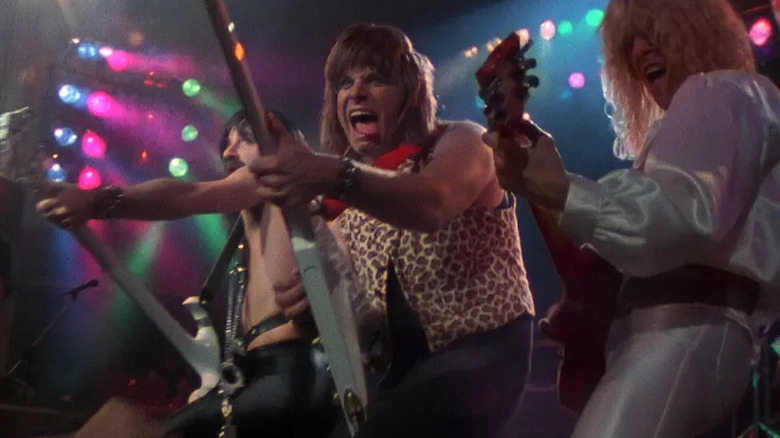10 Best Movies Under 90 Minutes
In our humble opinion, the optimal runtime of a movie is 90 minutes. The vast majority of stories put to celluloid can be set up, explored, and satisfactorily concluded in a tight hour and a half if in the hands of an astute director and a sharp screenwriter. There are exceptions of course: Christopher Nolan's big winner at the 96th Academy Awards, "Oppenheimer," clocked in at an impressive 180 minutes, and I would argue that every minute held its own necessary purpose.
Notwithstanding the Nolans of the world, though, a great 90-minute movie finds that sweet spot where entertainment and intrigue meets our ever waning attention spans. These movies can be found across any genre — come in hot with the laughs, thrills, and scares, and get out just as quickly — and given the economical nature of 90 minutes, the runtime itself can serve as a narrative device for films that work in real-time.
To celebrate the 90-minute feature (and to give our attention spans a break from the ever-expansive awards fodder), we've compiled a list of the 10 best movies that hit the sub-90 mark with offerings from around the world and across a variety of genres. Here are the best movies under 90 minutes.
Rope (80 minutes)
Beginning with the oldest, and one of Alfred Hitchcock's best movies: 1948's "Rope." Adapted from Patrick Hamilton's eponymous play, the film is best known for being filmed and edited as to give the appearance of a single continuous shot.
"Rope" begins with the murder of a young man by his former prep school classmates, Brandon Shaw (John Dall) and Phillip Morgan (Farley Granger), as an "intellectual exercise" as the two smugly desire to demonstrate the perfect crime. The two stuff the dead body into a wooden chest that sits pretty inside a Manhattan penthouse apartment. Their arrogance emboldens the duo and they host a dinner party using the wooden chest as a buffet table.
The film unfolds in real-time with James Stewart's Rupert Cadell, Brandon and Phillip's old housemaster, growing suspicious of the two. Stewart famously grew wary of Hitchcock's overwhelming focus on the one-take approach, describing the process to the New York Times as "the craziest, most difficult thing." He even went as far as telling the famed director, "I think you missed the boat a little with this one-set thing."
The word "gimmick" gets thrown around a lot with "Rope," but the relentlessness of the appearance of a continuous shot serve the film by adding an element of tension underneath the mounting pressure Rupert creates. One of Hitchcock's most experimental films, "Rope" exemplifies the form as a director's medium like no other.
Before Sunset (80 minutes)
Richard Linklater begins "Before Sunset" in his own metaverse with a gaggle of reporters asking Jesse (Ethan Hawke) whether the two characters in his novel meet again in six months in Vienna as they passionately promised. Jesse responds coyly that he thinks he did answer that question in the text, but thankfully, Linklater grants his audience a more definitive answer.
With Céline's (Julie Delpy) appearance at the book reading, we discover the two sadly didn't meet again. The death of Céline's complicated her ability to travel, while Jesse waited at the train station believing Céline to have stood him up. The two let bygones be bygones, and just as in "Before Sunrise," they decide to spend time together before Jesse's flight (this time in one hour).
While "Before Sunrise" could have existed as a romantic and optimistic stand alone film about young love and unbridled passion, by continuing the story with "Before Sunset," Linklater set in motion one of cinema's great trilogies. By existing in an 80-minute vacuum, Linklater continues Jesse and Céline's romance with the same immediacy that sparked their initial attraction. My personal favorite across the three films, "Before Sunset" provides the answers and a satisfactory resolution to a great cliffhanger.
Coherence (89 minutes)
It's always advisable to go into a film blind — avoid the trailers, forget the hype from the neighborhood cinephile, and ignore the film bros online — just take a gamble and watch a movie without knowing anything about it. While "Coherence" certainly falls into this category of film, by story's end, you wouldn't be faulted for not really understanding it.
The film centers around a dinner party among friends who enjoy a lovely evening until the power cuts after a comet passes by overhead. The blackout extends across the quiet suburban community and when the group go out to explore, they come across a chilling discovery.
In his directorial debut, James Ward Byrkit opted for an improvisational environment, giving each cast member a page of notes pertaining only to their character ahead of a shooting day. The twist and turns of the story that Byrkit had meticulously planned out naturally unravelled and actors responded with genuine reactions. "Coherence" doesn't seek to be considered a found-footage film, but this loose shooting method creates a fly-on-the-wall atmosphere, as if we're intruding in on a friendly game night.
Undoubtedly, "Coherence" prevails as one of the great lo-fi science fiction films of, at least, the 21st century. Byrkit's ability to weave a mystery through Agatha Christie and the supernatural is simply awe-inspiring. The film excels not just in its clever plot twists or as a whodunnit, but "Coherence" also finds its step in the unsettling, disconcerting silences among friends.
Stand by Me (89 minutes)
Few films can make elicit a sense of nostalgia for a summer we didn't experience, but thankfully, Rob Reiner finds this ability in adapting Stephen King's 1982 novella "The Body." Written by Bruce A. Evans and Raynold Gideon, "Stand by Me" continues to be hailed as one of the best coming-of-age films ever made, and it proudly holds the title of the movie that moved King himself to tears.
In the film, a group of friends go on an adventure to recover the body of a young boy reportedly fatally hit by a train. Driven by the desire to be seen as local heroes, Gordie (Wil Wheaton), Gordie (Wil Wheaton), Chris (River Phoenix), Teddy (Corey Feldman), and Vern (Jerry O'Connell) head into the woods towards the train tracks, and throughout their journey discuss their lives, dreams, and fears.
Featuring a cast of tremendous young talent, the conversations between the boys come across as wise and thoughtful beyond their years, which, in large part, forms the reason why "Stand by Me" has enjoyed so much success. It's easy to forget we're watching a "kid's movie." Between the writing and the performances, the subject-matter of "Stand by Me" is decidedly adult, while the actual ages of the characters layer on a sweet disposition and innocent humor, even in the face of heartbreaking moments.
If we're lucky, "Stand by Me" captures a time in our lives that can never be repeated, but the memories of which will linger on forever.
Fruitvale Station (85 minutes)
Before there was "Sinners," Ryan Coogler and Michael B. Jordan made their mark in Hollywood as a duo to be reckoned with in "Fruitvale Station," a biographical drama based on the life and death of Oscar Grant.
In 2009, Grant, an unarmed 22-year-old Oakland resident, was detained and fatally shot by BART Police Officer Johannes Mehserle, an incident caught on video by several bystanders using their mobile phones. Grant's death, and Mehserle's subsequent trial, sparked protests and riots across the Bay area, as frustrations with racial profiling and police brutality boiled over. A jury eventually found Mehserle guilty of the lesser charge of involuntary manslaughter, and not guilty of second-degree murder or voluntary manslaughter. Sentenced to two years imprisonment, Mehserle was released from prison on June 13, 2011 after serving 11 months.
Since its release in 2013, "Fruitvale Station" has been lauded as one of the best performances from Jordan and remains one of Coogler's best films to date. The film won various awards, including recognition for Coogler at the 2013 Cannes Film Festival, and became a launching pad for both the director and Jordan, as well as forming one of modern day cinema's great actor-director partnerships.
The success of the film doesn't just come from the portrayal of the injustice at the heart of Grant's story, but from the celebration of his life as a son and young father. Coogler's restrained storytelling and Jordan's forceful performance combine to make a compelling film indicative of an era in American history.
Cléo from 5 to 7 (90 minutes)
Only the second film from legendary filmmaker Agnès Varda, "Cléo from 5 to 7" demonstrates not only the best of Varda's filmmaking prowess, but the best of what the French New Wave had to offer. Set in real-time, "Cléo from 5 to 7" follows the titular singer (Corinne Marchand) as she awaits the results of a biopsy that she thinks will bring a diagnosis of cancer. Throughout her day, Cléo gets her tarot card reading done, shops for hats, visits friends, and even watches a silent short film, running down the clock in an attempt to distract herself from potentially life altering news.
The film culminates in Cléo meeting Antoine (Antoine Bourseiller), a soldier on leave from the Algerian War, and the two bond over their shared confrontation of death. Their meeting is brief and most likely they will never meet again, but in their one-off conversation, Antoine and Cléo find a kindred spirit and make a connection that, I like to believe, will last a lifetime.
Unlike many of the films in the French New Wave movement, Varda forgoes the brash boldness of her peers and instead paints "Cléo from 5 to 7" with a gentle subtlety. Through Cléo's various interactions, we experience the beauty and mundanity of life. The poignancy Varda instills in a film as deceptively simple as "Cléo from 5 to 7" is one of many examples of her brilliance. Through her narrative films and documentaries, Varda's imprint on cinema has been celebrated widely, and yet, it still doesn't feel sufficient.
Rashomon (88 minutes)
As far as directors go, arguably, no one has been more influential on modern day cinema than Akira Kurosawa. While many of his films have been adapted around the world — such as John Sturges' "The Magnificent Seven," which the famed Japanese director had mixed feelings on — Kurosawa's significance on the form goes beyond individual remakes. His scripts, camerawork, and general storytelling sensibilities created genres like the spaghetti Western, inspired perhaps the greatest space opera from its beginnings to its contemporary iterations, and utilized a narrative device so relentlessly copied, it became the cinematic form of a genericized trademark.
"Rashomon" recounts the murder of a samurai through four different perspectives and versions of the event. The film stars Kurosawa's long-time creative partner Toshiro Mifune as Tajōmaru, the bandit accused of the murder; Masayuki Mori as Takehiro Kanazawa, the slain samurai; Machiko Kyō as Masago, Kanazawa's wife who Tajōmaru either rapes or seduces (depending on whose testimony one believes); and Takashi Shimura as the woodcutter who claims to have witnessed the murder.
Kurosawa's use of four different perspectives to explore the fallibility and relativity of our memories has not only been replicated by Batman, Park Chan-wook, and Matt Damon and Ben Affleck, "the Rashomon effect" has even found its way into the legal system, being cited in a Queensland Supreme Court judgment. While an undeniably compelling film, the legacy of "Rashomon" extends beyond typical cinematic enjoyment. Kurosawa's desire to consider subjectivity versus objectivity tapped into a psychological study that continues to confound creatives and audiences today.
Shaolin Soccer (87 minutes)
Comedies tend to benefit from a lean runtime more than other genres by hitting jokes quickly and leaving before overstaying their welcome. With quick editing and sharp jokes, Stephen Chow's "Shaolin Soccer" has garnered a cult following around the world since its 2001 release, and the perfect example of the humor found in the Cantonese language and Hong Kong culture.
Chow, who also directs and writes the film, stars as Sing, a former Shaolin monk and practitioner of kung fu. In an effort to bring Shaolin kung fu to the masses, Sing reunites with his brothers following the death of their master to play soccer using their martial arts skills.
The film won multiple Hong Kong Film Awards in 2002, including three for Chow specifically as director and actor, and has influenced others like Edgar Wright's "Scott Pilgrim vs. the World" and Michael Dante DiMartino and Bryan Konietzko's television series adaptation of "Avatar: The Last Airbender." "Shaolin Soccer" takes the absurd to an extreme by mixing martial arts and soccer to create a cartoonish action-comedy like no other.
Shiva Baby (78 minutes)
The debut of writer-director Emma Seligman and the break-out performance for actress Rachel Sennott, "Shiva Baby" brings the unnerving anxiety of "Uncut Gems" and the claustrophobia of thrillers like "Phone Booth" and "Panic Room," to sitting shiva.
The film begins with Sennott's Danielle having sex with her sugar daddy only to be reunited with him later in the day at her aunt's place for the mourning tradition, discovering him to be married and a father in the process. As the gathering wears on, family members accost Danielle about her plans after college and past loves appear complicating things further.
Sennott's awkward, yet delightfully charming performance balances the comedy of the film against the almost horror-like terror of the situation. As Danielle's world closes in on her, we feel the pressure and suffocation of her plight and mercifully, Seligman keeps "Shiva Baby" to under 90 minutes. The film stands as a visceral watch, probably one only to experience once — the highest compliment I can give in this situation.
This Is Spinal Tap (82 minutes)
Across his decades of work, director Rob Reiner has given us a wide breadth of classics such as "When Harry Met Sally," "A Few Good Men," "Misery," and the aforementioned, "Stand By Me," but it all started with "This Is Spinal Tap." Often considered one of the greatest mockumentaries of all time, the film follows the titular band comprised of David St. Hubbins, Nigel Tufnel, and Derek Smalls (Michael McKean, Christopher Guest, and Harry Shearer, respectively), with Reiner also starring as documentary filmmaker Marty Di Bergi.
Intelligent and hilarious, "This Is Spinal Tap" satirizes the seriousness and pretension that prevailed among rock band documentaries in the late '70s such as "The Last Waltz" and the medium of documentary itself. Reiner, McKean, Guest, and Shearer all share a writing credit on the film having developed the idea of the parody rock band as a part of a 1979 sketch comedy special, "The TV Show." Much of the movie's dialogue was improvised, injecting a level of realism that had many at the time believing Spinal Tap to be a real band, only adding to the comedic legacy of the film.
"This Is Spinal Tap" stands as a stalwart of 1980s humor and a fan favorite among musicians and comedians alike. Reiner's talents as a filmmaker were apparent right from the jump with this inventive and clever film that has oft been imitated but never duplicated. After a long 41 years, the band reunite to turn it up to eleven once more in a sequel, with the original cast returning, which we can only hope garners reviews better than "s**t sandwich."
